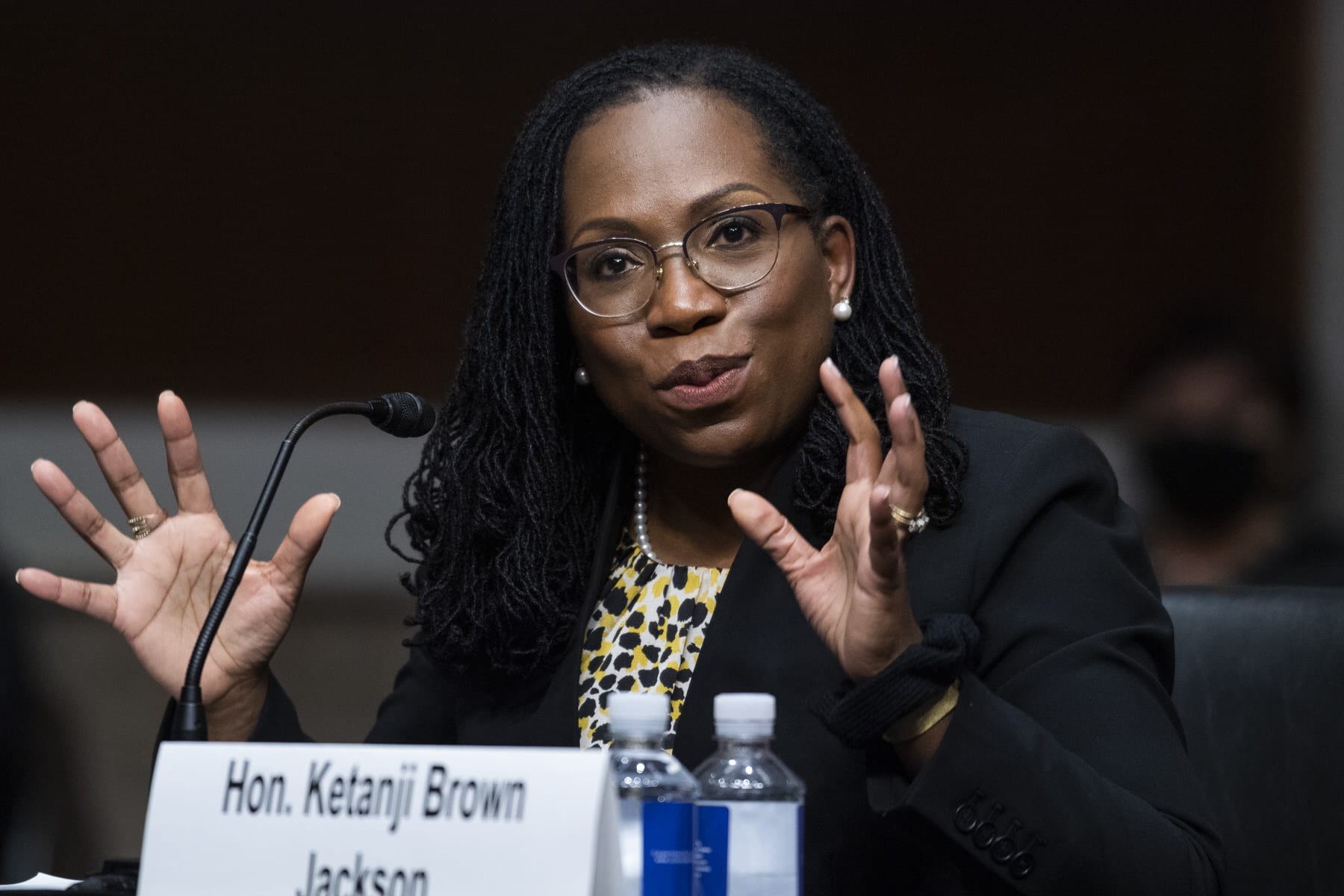This article has been updated after reports that Justice Stephen Breyer plans to retire.
The pending retirement of Supreme Court Justice Stephen Breyer means focus will quickly shift to his potential replacements, and one of the names most often raised by court watchers and legal experts is that of Judge Ketanji Brown Jackson.
Jackson, nominated by President Joe Biden, was confirmed to the U.S. Court of Appeals for the D.C. Circuit in June. She took the seat Merrick B. Garland vacated when he became the U.S. attorney general.
The D.C.-based appellate court is a well-known stepping stone to the Supreme Court. During his campaign, Biden said that he would name the first Black woman to the Supreme Court if there were a vacancy, and Jackson, who was on President Barack Obama’s shortlist in 2016, has come up repeatedly as a top candidate.
Jackson, 51, became a United States district judge in March 2013. She also served as the vice chair of the United States Sentencing Commission until December 2014. Before her position in the commission, she worked as counsel at Morrison & Foerster LLP, focusing on criminal and civil appellate litigation in both state and federal courts, as well as cases in the Supreme Court. She serves on the leadership council of the American Law Institute and the governing board of Harvard University, where she received her undergraduate and law degrees.
The D.C. Circuit wields national influence through the cases it hears on subjects as varied as gun safety measures, food safety, labor law, clean air regulation, national security, and election law.
Biden has nominated eight Black women to the 13 U.S. Courts of Appeals. Five have been confirmed.
Jackson was asked about her background during earlier hearings related to her nomination.
“I’ve experienced life in perhaps a different way than some of my colleagues because of who I am, and that might be valuable” she told the Senate Judiciary Committee.
Jackson was approved 13-9 by the Senate Judiciary Committee on April 28, providing comprehensive answers with no fireworks. She demonstrated her ability to be a steadfast voice in the face of questioning, including a pointed query about how her race may affect her position from Sen. John Cornyn.
“I’m doing a certain thing when I get my cases,” she told Cornyn, a Texas Republican. “I’m looking at the arguments, the facts and the law. I’m methodically and intentionally setting aside personal views, any other inappropriate considerations.”
As a judge on the U.S. District Court for the District of Columbia, Jackson reminded President Donald Trump in a 2019 ruling that “presidents are not kings” and ordered the White House counsel, Don McGahn, to comply with a House subpoena.
In past cases she also protected federal union workers’ collective bargaining rights in a 2018 ruling by striking down key provisions in three executive orders, including a 25 percent cap on the time federal employees elected to union positions can use for union matters.
Jackson has also ruled in favor of the nation’s most vulnerable people. In the 2015 case Pierce v. District of Columbia, she ruled that prison officials showed “deliberate indifference” when a “plainly hearing-disabled person” was in their custody. William Pierce, a deaf person who received no accommodation while he was in custody at the D.C. Correctional Treatment Facility, won compensatory damages. In 2019, Jackson blocked the Trump administration’s move to expand expedited deportation for undocumented immigrants.






